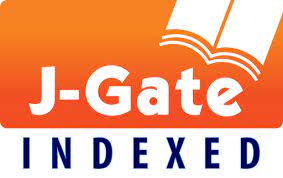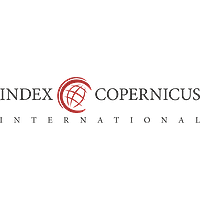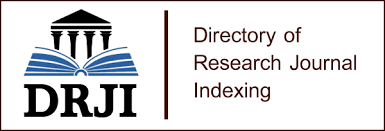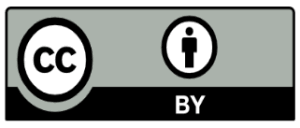STUDENTS ATTITUDE TO MASTERY LEARNING INSTRUCTIONAL APPROACH IN TEACHING MATHEMATICS ON THEIR ACHIEVEMENT IN MATHEMATICS IN OYO STATE, NIGERIA.
Abstract
This paper presents students’ attitude to mastery learning instructional approach implementation in improving their achievement in mathematics among senior secondary school students’ in Ibadan Metropolis. Mastery learning is an alternative method of teaching and learning that involves the student reaching a level of predetermined mastery on units of instruction before being allowed to progress to the next unit. The study adopted the action research type of the non experimental design. The study population consisted of senior secondary school students in private schools in the state. The multistage sampling technique was used to select the samples of the study which comprised of all SS 1 student’s in a private secondary school in the city (37 students). Results of the study show that mastery learning strategy is effective in enhancing students’ learning outcomes in mathematics; students have a positive attitude towards the implementation of mastery learning strategy in teaching and learning mathematics; the gender of students do impact on their achievement in the subject. It is recommended therefore, that mathematics teachers should be encouraged to adopt mastery learning approach during instructions and that educational planners increase the numbers of periods allotted to mathematics teaching and learning in schools as this would foster students’ learning outcomes/mastery of the subject.
References
References
Abakpa, B.O. and Iji, C.O. (2011). Effect of Mastery Learning Approach on Senior Secondary School Students Achievement in Geometry. Retrieved from http://stanonline.org/journal/pdf/ JSTANAbakpa & Iji.pdf on 05/08/2012.
Abiam, P. O. and Odok, J. K. 2006. Factors in Students’ achievement in different branches of secondary schoolMathematics.Journal of Education and Technology.1(1), 161 – 168.
Adebayo, O.A.(2006). Problems of teaching and learning mathematics in secondary school. Paper presented at workshop on effective teaching of mathematics. LSPSSPC.Magodo, April 2006.
Adeleke, J.O. (2007). Gender role on topic preference of senior secondary school students in Mathematics. Paper presented at WAEC monthly seminar, Lagos.
Akinsola, M.K. (2010). Mastery Learning, Cooperative mastery learning strategies and students’ achievement in Integrated Science. Retrieved from http://scholar.google.com/scholar?q=mastery +learning+cooperative+mastery on 05/08/2012.
Akinsola, S. (1987). Difficult topics in mathematics: a case study of secondary schools in Oyo State; Unpublished M.Ed project, University of Ibadan.
Babalola, B. (1983). An explanatory study of remedial mathematics teaching by non-mathematics experts using the mastery learning approach: Paper presented at the annual conference of the Nigeria psychological society, Port Harcourt
Block, J. H. & Anderson, L. W. (1975). Mastery Learning in Classroom instruction. New York; macmillan.
Campbell, J. R., Hombo, C. M., & Mazzeo, J. 2000. NAEP 1999 trends in academic progress:Three decades of student performance. Washington, DC: National Center for Education Statistics.
Davis, D. & Sorrel, J. (1995). Mastery learning in public Schools. Educational Psychology Interactive. Valdosta, G.A. Valdosta State University. Retrieved 27/6/2011, from http://teach.valdosta.edu/whwitt /files/masterear.html on 21/06/2011.
Elekwa, U.C.C. (2010). Effects of collaborative teaching/learning strategies on the mathematics achievement of senior secondary school students in Abia state of Nigeria. Unpublished PhD Thesis submitted to Faculty of Education, University of Port Harcourt
Epstein, J. L. 1991. Effects on student achievement of teachers’ practices of parent involvement. In S.B. Silvern (Ed.), Advances in readings/language research (5th ed., pp. 261-276). Greenwich, CT: JAI Press.
Fluty, D. 1997.Single parenting in relation to adolescents’ achievement scores. Research Center for Families and Children, 6, 4-8.
Howes, E. V. (2002). Connecting girls and science. Constructivism, feminism, and education reform. New York: Teachers College Press.
Ihendinihu, U.E. (2008). Effects of Guided Scoring Instructional Strategy on the performance of secondary school students in mathematics in Abia state. Unpublished M.ED Dissertation submitted to the faculty of education, Abia- state University Uturu
Iji, C. O. (2005). Effect of logo and basic Programming on the Achievement and Retention in Geometry of Junior Secondary School Students. Journal of Mathematical Association of Nigeria
Iji, C.O. (2008). Reforming School Mathematics Curriculum in line with global challenges. Proceedings of the 49th Annual Conference of STAN. pp226- 230. Journal of Emerging Trends in Educational Research and Policy Studies (JETERAPS) 4(6):848-854 (ISSN:2141-6990)
Imoko, I. B. and Agwagha, U. N. (2006). Improving student’s Interest in Mathematics Through the Concept Mapping Technique. A focus on Gender. Journal of Research in Curriculum and Teaching 1(1), 30-31
Nnaji, N.G. (1998). A survey of difficulty topics in Mathematics. A case study of secondary schools in Oyo state. unpublished research project, University of Ibadan.
Olatoye RA and Ogunkola BJ (2008). Parental Involvement, Interest in Schooling and Acedemic Achievement of Junior Secondary School Students in Ogun State, Nigeria. College Teach. Available at: www.cluteinstitute.com Methods Styles J. 4(8): 33-39
Olufunmilayo, I.O. (2010). Enhanced mastery learning strategy on the Achievement and Self Concept in Senior Secondary School Chemistry. Humanity and Social Science Journal 5(1): 19-24.
Olunloye, O. (2010). Mass Failure in Mathematics: a National Disaster. Tribune of 07/02/2010.retrieved from http/www.tribune.com.ng on 08/05/2011.
Overmyer, G. R. (2010). History and Effectiveness of Mastery Learning in mathematics: From B.F. Skinner to the internet. Retrieved from on 27/06/2011. pi.ning.com/files/… /History of Mastery Learning.pdf.
Reid, N. (2003). Gender and physics. International Journal of Science Education, 25 (4), 509 536.
Salmon, M .F. (2005). Teachers identification of the difficulty Levels of topics in the primary school mathematics curriculum in Kwara state. ABACUS vol.30 NO PP.20-29.
Samuel, O.S. (2007). Effects of personalized system of instruction on students’ Academic Achievement in Chemistry. Pakistan journal of social science 4 (1): pp 132-136.
Sinnes, A. T. (2005). Approaches to gender equity in science education. Two initiatives in sub-Saharan African seen through a lens derived from feminist critique of science. Oslo: Unipub.http://www.ils.u10.no/forskninig/palidrgrad/doktorarhandlinger/docs/AstridSinnesAvhandlingfeminist critique of science.oslo: Unipub.pdf.
Uhumuavbi, P.O. & Umoru, G.E. (2005). Relationship Between Interest in Mathematics and Science Among Polytechnic Students - A Case Study of Auchi Polytechnic. Nigerian Journal of Professional Teacher 1 (1), 71-76.
Uwadiae, I. (2010). WAEC Releases may/June WASSCE Results. This day newspaper of 20/08/2010. Retrieved from allafrica.com.nigeria.nig on 06/05/2011.
Wambugu, P. W. & Changeiywo, J. M. (2008). Effects of Mastery Learning Approaches on secondary school students’ physics Achievement Eurusia Journal of mathematics, Science and Technology education, 4(3), 293-302. West African Examination Council (2010). Chief Examiner’s Reports. May/June SSCE, Lagos: WAEC Publication.
Yara, P.O. and Otieno, K.O. (2010). Teaching/ learning Resources and Academic Performance in Mathematics in Secondary schools in Bondo District of Kenya. Asian Social Science. Vol 6, No.12. pp 126-132.
UNESCO (2003). Gender and education for all: the leap for equality. Global monitoring report 2003/2004.http://www.unesco/oc.unesco.org/education/eta-report/2003-pdf/chapter3.pdf.
Published
How to Cite
Issue
Section
License
Copyrights for articles published in Journal of Asian and African Social Science and Humanities are retained by the authors, with first publication rights granted to the journal. The journal/publisher is not responsible for subsequent uses of the work. It is the author's responsibility to bring an infringement action if so desired by the author.
Articles published in Journal of Asian and African Social Science and Humanities are published under the Creative Commons Attribution (CC-BY) license, which permits others to distribute, remix, tweak, and build upon your work as long as they credit you for the original creation.
Â














